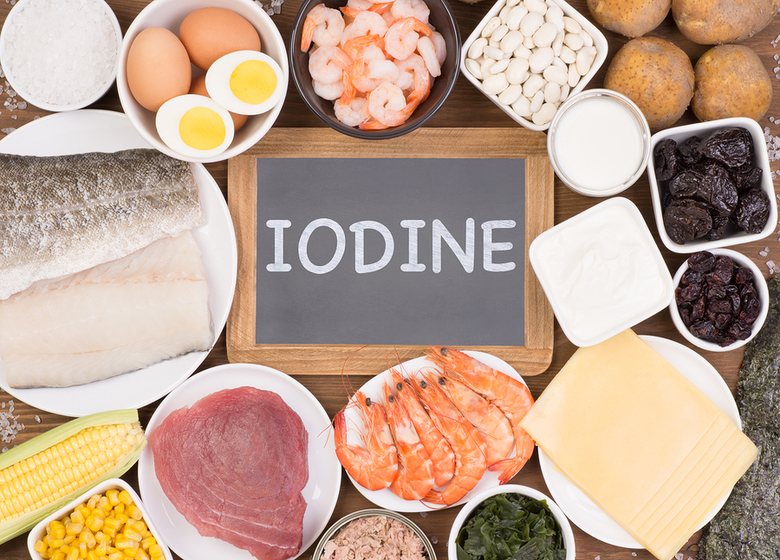If you read about the necessary elements of food, vitamins, minerals, omega-3 acids and plenty of others to be found in the right quantities, your mind will cloud every day. One of those seldom makes the cut because, thanks to the salts we have, it is generally considered to be present by default. This is iodine, and it is impossible to underestimate its importance. In general life, not only is it vital, but it also plays a key role in a pregnant woman. Continue reading to know the importance of iodine in pregnancy diet.
Why is Iodine Is Important?
During pregnancy, the iodine needs as an adult are quite different from our usual requirements. When pregnant, iodine is what keeps the thyroid gland working properly. It is the control nexus for the optimal functioning of different vital body functions, including your heartbeat and temperature. This must be perfect for keeping the fetus alive. Also, ensuring that the thyroid gland of your baby still grows properly. The risks with a thyroid gland that is improperly developed range from various birth defects to developmental delays, cretinism, and may even be fatal.
After the birth of your baby, iodine still needs to be present in adequate quantities in your body. Because that’s how your baby will get it. Consumption of iodine from the breast milk of a mother is important for a child to continue on schedule with the development of the body and brain.
Role Of Iodine In The Development Of Baby’s Brain
There is a reason why it is so easy to find iodized salt in the times of today. Even in the mildest forms, the link between iodine deficiency has been established with a child’s poor mental development. Different studies have shown that children struggle with reading skills or low IQ when it comes to verbal communication when they have iodine deficiencies or have been born to mothers who have them. The thyroid gland is indirectly linked to the brain’s development. The production of the thyroid hormone can only continue unabated if the presence of iodine in the body is at an optimal level.
Iodine Intake For Pregnant Women
During pregnancy, iodine requirements are quite different from those in women who are not pregnant or in mothers who are lactating. In general, lactating mothers need approximately 290mcg higher iodine compared to women who are not pregnant. Every day, pregnant women need at least 220 mcg of iodine. This does not have to be on a daily basis, but it can be averaged over a week or so.
Iodine Rich Food
In women, there are various iodine-rich foods for pregnancy that can help them to maintain optimum levels of the same without much worry.
- Hard-boiled eggs
- Tuna fish
- Baked turkey breasts
- Fish sticks
- Baked potatoes
Milk products, vegetables, and fish tend to contain a good proportion of iodine, based on the amount of iodine found in the surrounding water and soil. Seafood foods can sometimes contain a higher proportion of iodine than they are considered to be safe. Most people tend to prefer to eat seaweed because they contain significant iodine. But to avoid poisoning, this needs to be done in small quantities.
Effect Of Excess Intake Of Iodine During Pregnancy
Like any other nutrient out there, it only remains nutritious when consumed in a quantity that is optimal for the body. The same goes for iodine, too.
It is generally recommended that the daily intake of iodine should not exceed 1000 mcg. Consuming a lot of iodine on a regular basis can, in fact, lead to hypothyroidism in both you and your child. If you have a prenatal supplement that contains some iodine content, this should not usually be an issue. However, taking any additional iodine supplements is not recommended for this exact reason. Since all supplements start at a dose of 500mcg of iodine itself.
It is not a difficult task to maintain a healthy amount of iodine in the body. Having a good diet, using iodized salt in your meals, and having a healthy diet will keep you and your baby healthy. When you take some medicine to treat thyroid-related conditions, it is your best bet to keep your doctor in the loop.
Also Read: Importance Of Vitamin K During Pregnancy













